Ah Totnes! Nice one, Dave. Let's leave Chelston to his corporate coffee and Aussie to his fry-up and take in the ambience. A stroll down to the Leech Well followed by veggie breakfast at the Barrel House will do nicely.
But what is it with Barton Downs? Him and his bleedin' bacon factory!
Many businesses had been central to the economy of Totnes, in particular the Dairy Crest milk processing plant, Reeves Timber yard, Harris’ Bacon Factory, Dartington College of Arts, Symonds Cider, Tuckers Toffee, all of which no longer exist.
I found this great article written by someone whos dad once run the Bacon Facory, it sums up Totnes very well.
Lucy Siegle The Observer, Sunday 8 May 2005Shiny hippy people It's Britain's alternative capital. A New Age nirvana of Sufis, surfers and Buddhist builders with a high street of eco-supermarkets and environmentally aware clothing shops. Lucy Siegle reveals why Totnes is the country's funkiest address
I have some history with Totnes, and some issues, too. I was 10 when my family moved here. To an outsider the town had all the credentials that make for an insignificant tourist pleaser - it was surrounded by beautiful Devon countryside, set on the river Dart, near to the sea and featured a Norman motte and bailey castle, and an Elizabethan butterwalk. But it was far from insignificant. In fact, for someone with my suburban mindset, Totnes was frankly unnerving.
It was 1985, and elsewhere in the world, McDonald's had served its 50 millionth hamburger, Dallas was on TV and Wham! topped the charts. In Totnes, however, it was forever Woodstock. The town's inhabitants clutched crystals, wore tie-dye and at any time a dreadlocked individual could be found playing the didgeridoo outside Salago - the closest Totnes came to a department store (it specialised in wooden Steiner toys and juggling sacks).
It wasn't difficult to feel out of the crazy loop. There was the fact that my dad ran the local bacon factory. In a town with a significant vegan population this was hardly a fast track to integration. And there were the shoes. True Totnesians didn't even do Birkenstocks - they were considered too mainstream. Instead, they wore Conkers, an indigenous brand, constructed and allegedly 'designed' in the town. Made of bright, multicoloured pieces of leather banded together with large stitching, they were particularly favoured by my mum - at the time a keen proponent of Clothkits garments and Peruvian culottes - but not by myself. I hankered after the patent-leather pointy shoes on sale in the real world.
Imagine my surprise, then, when I returned from the real world a couple of years ago to find that Totnes had not only survived its deeply worthy phase, but emerged as a charming beacon for contemporary living. Its weirdness had, in fact, become an asset. Like all British towns, Totnes has changed. But unlike other British towns, Totnes has changed for the better. The bacon factory, long since closed, is now a supermarket, but that is where the tide of clone-town Britain appears to have stopped. You won't find a Starbucks, Next and m&S in Totnes, but you will find an eco-supermarket and independent clothes shops with enough savvy labels to keep your wardrobe up to date.
In Totnes these days, you can mix up the worthy with the frivolous; do a meditation workshop in the morning and get a Fake Bake tan in the afternoon; buy an organic rabbit, some Nigella Lawson cookie cutters and attend a talk about Gaia theory. House prices - a cause of some consternation in this area and not far off London prices - have risen along with the celebrity headcount, which includes Damon Albarn, Rik Mayall and Jennifer Saunders. And securing a Saturday night table in Rumour, Totnes's favourite wine bar, requires dedication and strategic efficiency.
Last year, Time magazine declared Totnes the capital of new age chic. Then, just last month, Highlife, the British Airways magazine, declared it one of the world's Top 10 Funky Towns, alongside Daylesford in Victoria and Tiradentes in Brazil. Totnesians seem pleased, the 'urban utopia' tag providing a welcome change to the years of being called the 'new age' capital of the UK. It's not the first time that sweeping global claims have been made for this area. In the Thirties, Leonard Elmhirst, who set up Dartington, an experiment in rural reconstruction just two miles away, claimed there were more beautiful women per square yard at Dartington than anywhere else in the world. Some 70 years on, Derek, our photographer, seems to be having a similar revelation. His zoom lens alights on Kiri, a 19-year-old fine art student, who with her fantastically shiny, long blonde hair and luminescent skin could be a poster girl for veganism.
Dartington and Totnes don't like to be confused, but there's an undeniable connection. The Arts College at Dartington gives Totnes the feeling of a university town, albeit an unusual one, and has informed the alternative scene for generations. Although the progressive school set up by the Elmhirsts closed in the Eighties under a cloud - the Sun found that the head teacher of the time and his wife had appeared in a Seventies sex magazine, and then a pupil drowned in mysterious circumstances - Dartington has remained internationally influential. Without Dartington there would have been no Sharpham - a Totnes community set up by Elmhirst's son-in-law, Maurice Ash, as a focal point of alternative living, which still houses a Buddhist community - or Schumacher college, a pioneer of sustainable development. All these elements are responsible for the town's strange contemporary mix - one minute you're talking deep ecology, the next Cath Kidston homewares.
'It's not like other towns I've lived in,' says Andy, a musician, originally from Derby. 'You can always find someone to chat with about politics or the environment. Although,' he concedes, 'there are obviously the people born and bred here who think we're all a bunch of one handed self lovers.' There's also a lot of 'flow', always someone either leaving or coming back. In a few weeks, Andy, his girlfriend Grace and their four-year-old twins, Ione and Eve, will be off travelling round Europe for a year in a caravan before the girls get tied down by school. Grace, 24, runs Kiss My Art, an art company. She thinks they will come back. 'Totnes is a comfort zone,' she says. 'I moved back when I was pregnant because I didn't know how I'd take to being a mum, but I did know that at least I could surround myself with interesting, positive people, which was bound to help.' Were there any drawbacks? 'Pushing a double buggy through the "narrows" [the Totnes streets] was not such a positive experience.'
Her brother, Owen, who lives in a flat across the road, has already gone away and returned. Now he's reconvened with school friends Paddy and Dom to start their own surf label, Yard Clothing. 'We've been dreaming about doing this since we were very young,' says Paddy. Their T-shirts are selling well to a new generation of Totnesians, who identify more with surfers than hippies. 'The tie-dye look is very Totnes old school,' agrees Ellen Tatham, a sixth-form student at King Edward VI's - known as Keviccs - 'but if people want to wear that stuff, that's cool, too.' Her parents moved here when Ellen was three, with the stipulation that they needed to live relatively near the sea, a Steiner school, and in a town where they could make a living - they are both analytical psychotherapists. Totnes ticked all the right boxes.
It ticked all the right boxes for William and Gaby Lana, too. He's from New York, she's from Germany, and they both worked in Brussels for the EU before setting up Green Fibres, one of the first UK businesses to sell organic textiles and homewares. 'We wanted a town that was really alive, not just reliant on tourism or farming, and Totnes was it,' explains William. 'And we also knew Totnesians were ethical consumers and would spend money on what they believed in.
We wanted to be in a community that had similar aspirations.' Dartington, it turns out, was a 'nice surprise'; they hadn't really heard of it before, but now they are aware of its influence. According to Gaby, 'Totnes is also sophisticated enough to be a sounding board for ideas. A lot of people have moved here from big cities and they don't want some piece of crap just because it's green.'
They laugh when I ask them about Totnes stereotypes. 'I saw an episode of Grand Designs where you could tell the producers were just desperate to get that wacky element in,' says William, who is at the moment grappling with his own eco-renovation project, as the family has finally been forced out of the flat next to the shop by the expanding business. 'The builders happened to be Buddhists who had to meditate in the morning.' 'Although,' Gaby reminds him, 'our plumber turned up with his screws in a Dr Hauschka tin, which I thought was impressive.'
Sometimes you wonder how anyone finds a plumber or builder here at all. Flick through the local Yellow Pages and it is almost wholly taken up with therapists, counsellors and workshop leaders. 'Totnes is a total open hospital and we're the in-patients,' Sky tells me as we drink herbal tea in the Red Wizard, a small internet cafe tucked behind the high street. John Macadie is in charge of the Red Wizard, and since becoming a local councillor last year he is also partly in charge of Totnes. 'There's a lot of interesting stuff going on right now in this town,' he says, slightly mystically. By his own admission, he is pro-cannabis and 'a bit rough' and was surprised to get the council gig, although he takes it very seriously.
Sky continues with his 'open hospital' conceit. 'This is where people who have a certain level of sensitivity to certain things go. Then there's another side of it. The healers, they've gone through that psychological metamorphosis, they are nurses in this open hospital.' Emily, who sits on the sofa next to him, is potentially another edition to the holistic medical corps. She has a degree in business studies from Leeds, but has retrained in reflexology and is making the final arrangements to move to Totnes in a few weeks' time. Bo and Tony, two other arrivals from London, express concern. 'Therapists are everywhere in Totnes,' Tony emphasises. He tells me he used to appear as a hair-dressing expert on Style Challenge on cable TV. He certainly has the sofa manner.
'You are joining a very, very competitive industry and it is very, very hard to make a living unless you are doing something unique,' he tells Emily. 'I do more corporate-based work,' she assures them. 'I also find my business studies has given me an edge. A lot of people who do holistic medicine are good and kind, but can't market themselves. I want to make money out of what I do.' Tony and Bo nod appreciatively, seemingly convinced of Emily's chances of making it here. They share her spirit of enterprise, running the Hair Sanctuary a few doors down. Decked out in rococo-style gilt, they have brought London cuts to sleepy Devon.
Everybody has a tale of how they came to Totnes. Terence, 23, a guitar teacher who also plays in a Red Hot Chili Peppers tribute band, is one of those people who makes you question your own cynicism. 'Totnes has lived up to my expectations, and more. It shows how you can live. In Southampton I was really unhappy. If you're not into going out and getting pissed then you don't have any points of reference with people.' John lets him give guitar lessons in the Red Wizard, because otherwise he'd have to hire a space, which would cost more than he earns.
Terence lives with Lisa, now studying at Dartington, who is also a refugee from Southampton - where she was called 'Nazi' throughout her school career because her parents are German. Her father, Mui'zz Waldstadt, a 'fire-walking facilitator', has also arrived in Totnes via a Sufi community in Florida. 'It was meant to happen,' he tells me. 'There are things that are exceptional here. First, there is the emphasis placed on healthy living and health food. Then there is the fact that there's a real community here. You ask for help and people go out of their way to help you.'
'Totnes is also a trap,' warns Sky, just in the nick of time, because even I feel like I'm about to start crying at the beauty of it all. 'It's an isolated bubble of thinking and ideas, it's important to leave sometimes.' He left last summer, when he went to a seminar on the Red Hot Chili Peppers in Rome. 'I'm not doing much Mayan time-science at the moment, because my head has moved into other areas,' he explains. He and Emily begin discussing spiritual evolution. 'I like the way things overlap. I like building up intricate models of things,' says Sky. 'We're all wirelessly connected, we've all got bluetooth built in.'
I feel my personal bluetooth connection is starting to flag, so I make my excuses. 'Happy poem?' a young dreadlocked man in jester's trousers leaps out in the high street, proffering a basket of coloured scrolls. Ordinarily I'd have bought a happy poem, but right now I'm carrying a chair - a Lloyd-Loom style bath chair from the market - so I decline. As I weave my way down the street I notice that even the Conker Shoe Company has been given a make-over. Alongside some of the old faithful range, there are bags and Chelsea boots. It all looks positively Mulberry and I wonder if Totnes is, in fact, my kind of town after all
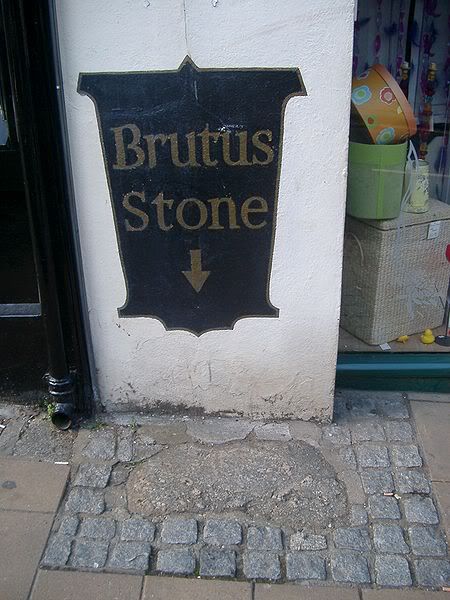
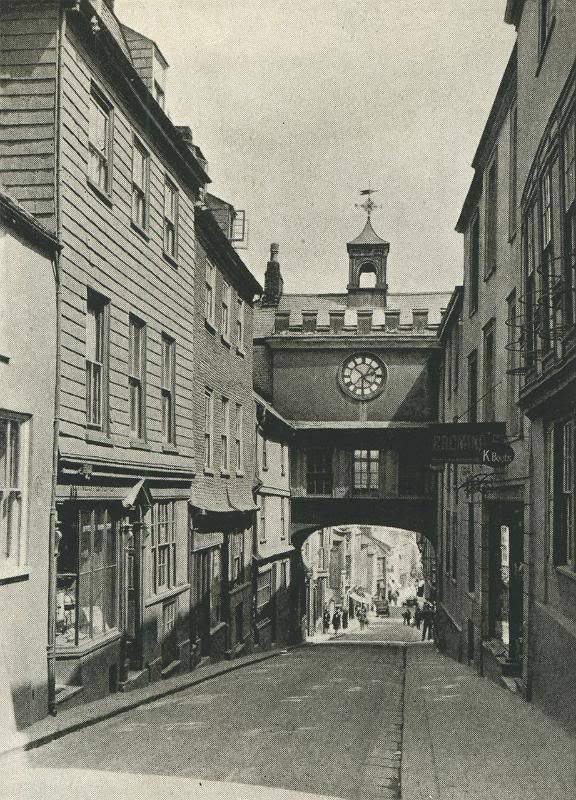
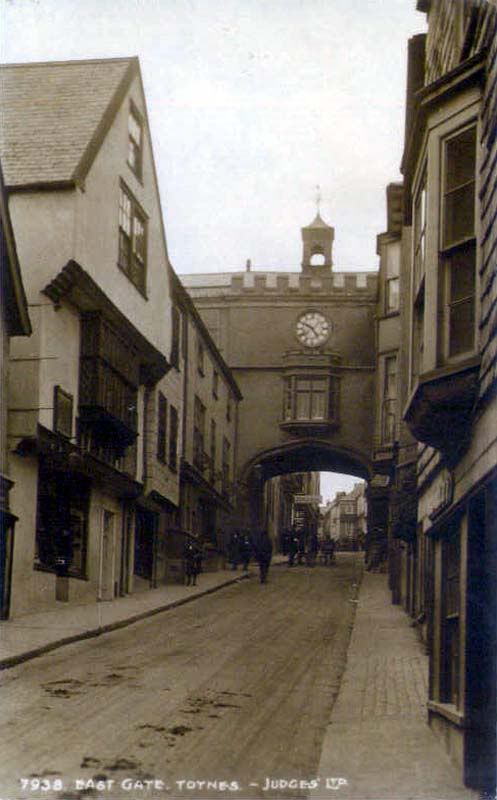
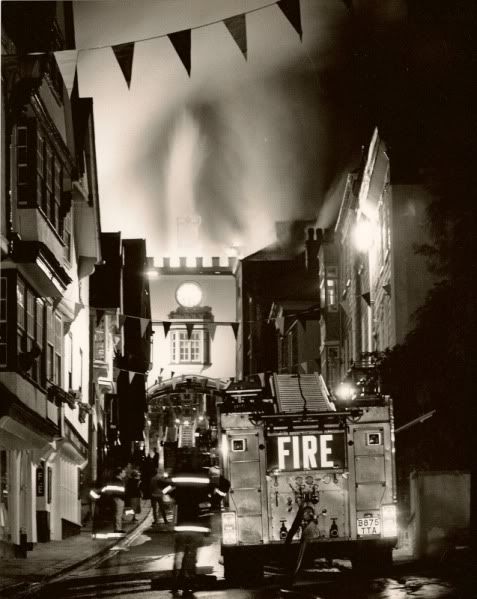
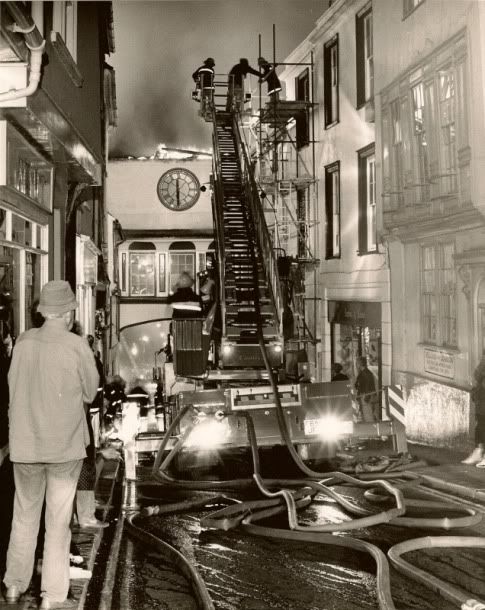
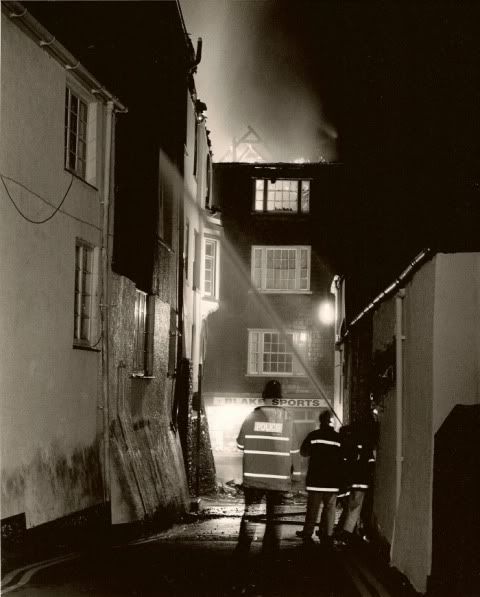
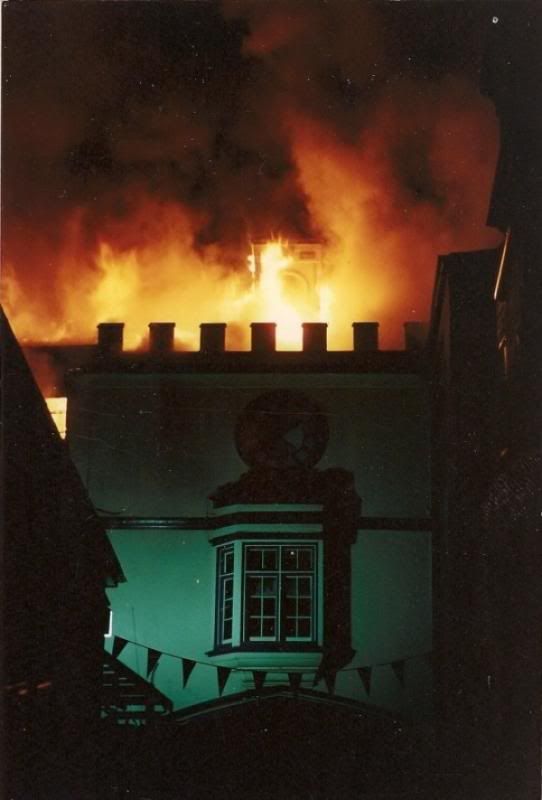
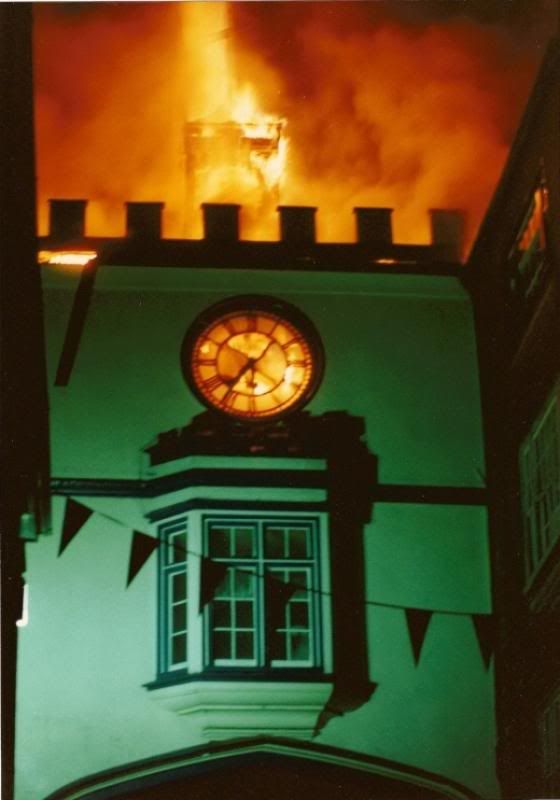

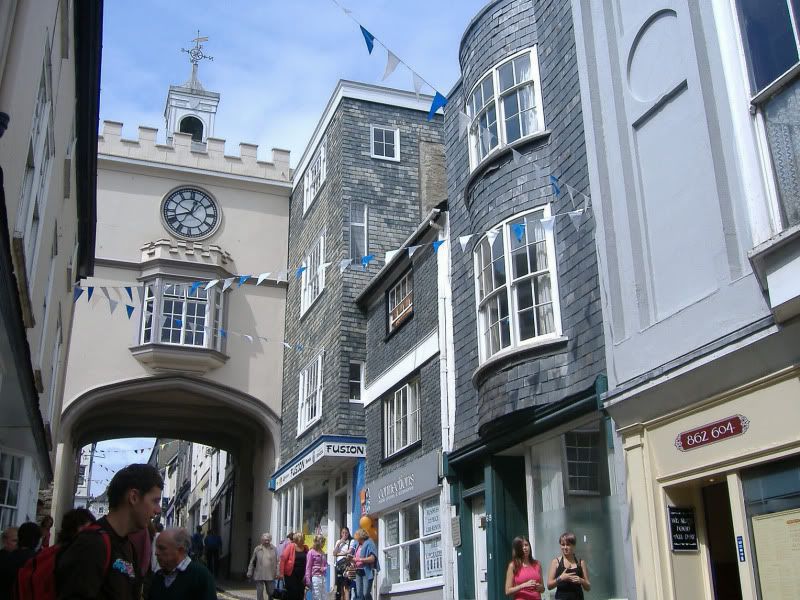













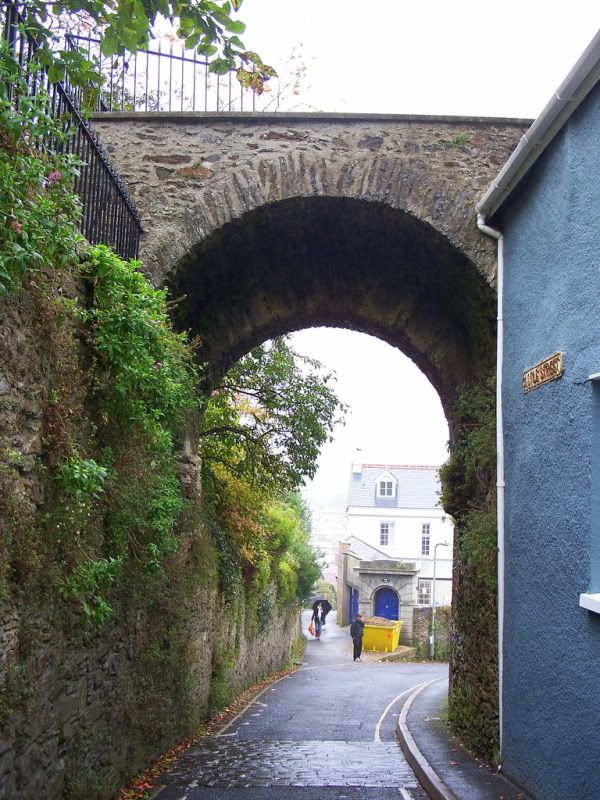
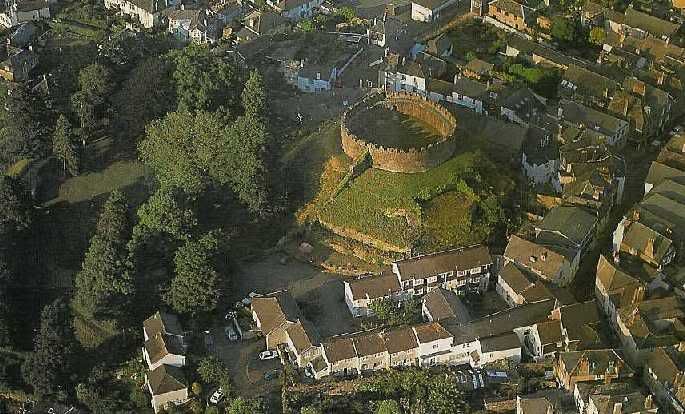

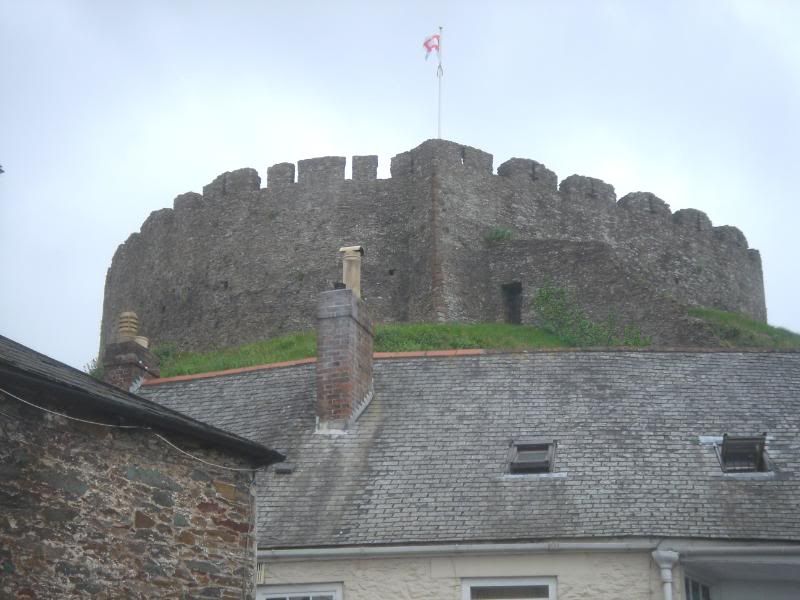

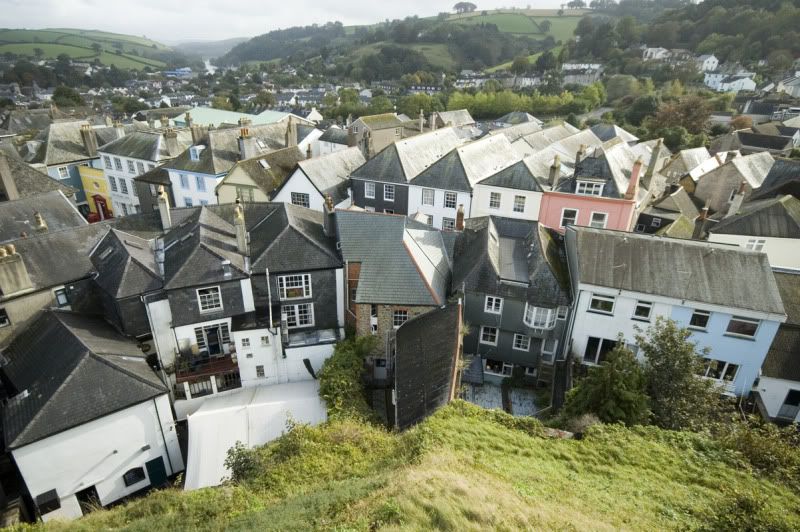
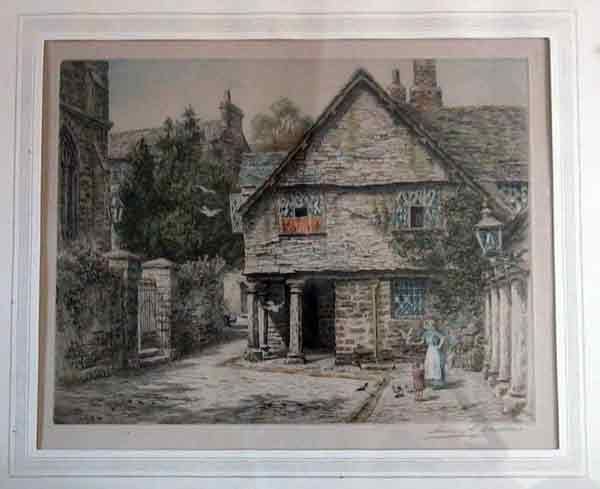
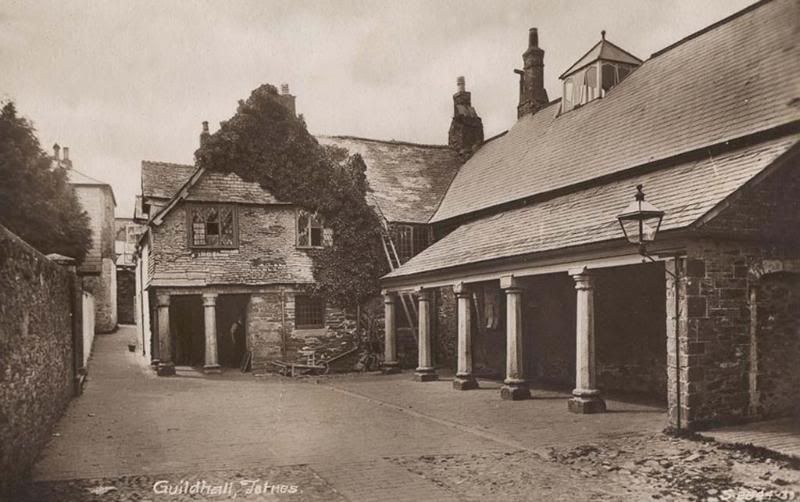
 Could have done had your name been "Bobet"!
Could have done had your name been "Bobet"! 
